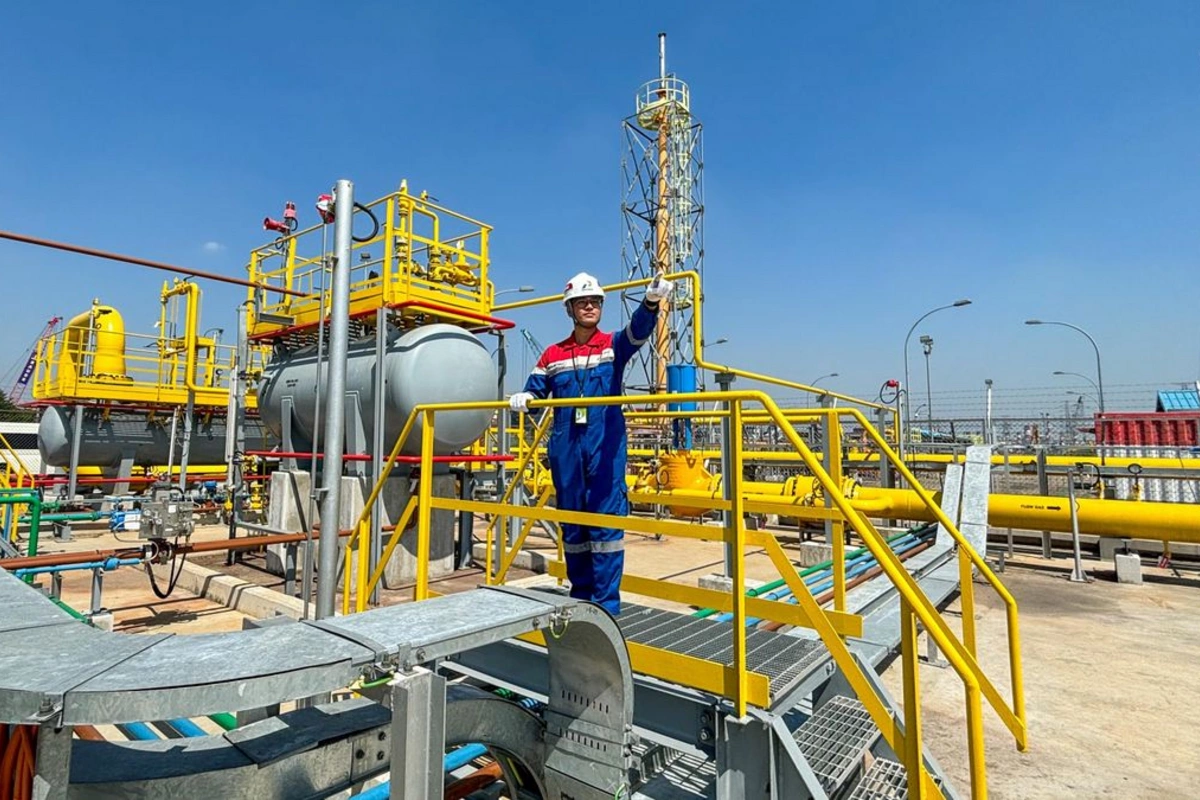
The pipeline supplies natural gas to more than 500 million people across 27 provincial-level regions and the Hong Kong Special Administrative Region.
PGN Gas Pipe (Photo: PGN)
The China-Central Asia Gas Pipeline has been a crucial source of clean energy for over 14 years, delivering more than 500 billion cubic meters of natural gas to China, The Caspian Post reports citing foreign media.
The Khorgos gas compressor station, a critical component of the pipeline, serves as the primary entry point for Central Asian gas into China. Known as the “head station” and the “heart” of China’s second and third lines of the West-to-East Gas Pipeline, the station plays a pivotal role in the system’s operation.
Since its commissioning in 2009, the Khorgos Compressor Station has operated safely and reliably for over 5,000 days, transporting over 500 billion cubic meters of natural gas. It is recognized as having the highest operational performance in Asia. With an operating pressure of 12 megapascals, the pipeline pumps more than 2,000 cubic meters of gas every second and can transport a maximum of 160 million cubic meters of gas daily.
The 522.5 billion cubic meters of natural gas transported by the pipeline is equivalent to replacing 696 million tons of standard coal, reducing emissions by 764 million tons of carbon dioxide, 25 million tons of sulfur dioxide, 379 million tons of dust, and 6.27 million tons of nitrogen oxides.
The Khorgos compressor station also contributes to green and low-carbon development. It houses China’s first electricity generation project powered by waste heat from natural gas-fired compressors. This innovation has enabled the station to achieve zero direct emissions for large gas transmission stations powered by gas compressors, with annual power generation exceeding 65 million kilowatt-hours.
From the first compressor station, natural gas travels 1,833 kilometers eastward over 84 hours, passing through central Uzbekistan and southern Kazakhstan before entering China at the Khorgos border checkpoint. The gas then feeds into the second and third lines of the West-East Gas Pipeline. With a design capacity of 60 billion cubic meters per year, the pipeline has been operational since December 2009.
The pipeline supplies natural gas to more than 500 million people across 27 provincial-level regions and the Hong Kong Special Administrative Region.
Share on social media